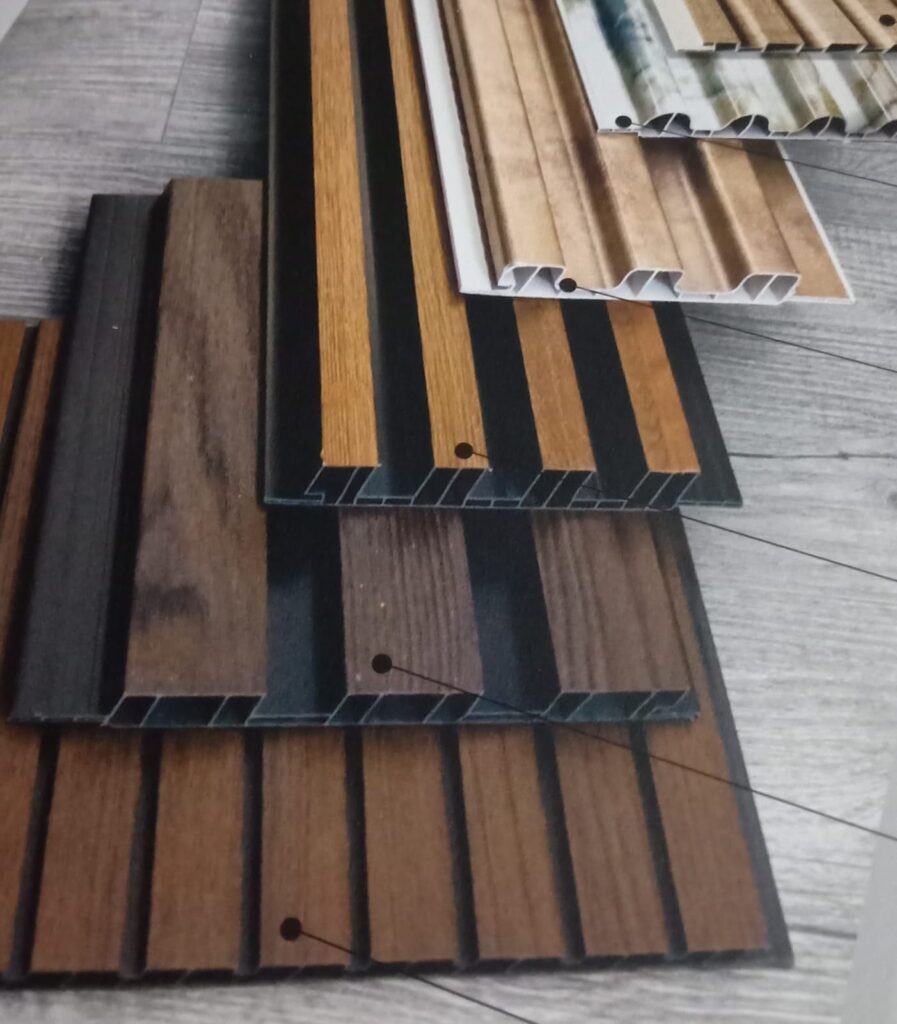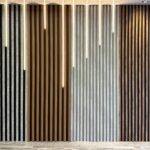Restoring Elegance: Revamping Old Fluted Panels
In the realm of interior and architectural design, old fluted panels hold a unique charm. These vintage architectural elements, with their timeless grooved patterns, can breathe new life into spaces with a touch of nostalgia. However, over time, old fluted panels may lose their luster and require some tender loving care to regain their former glory. In this guide, we embark on a journey to discover the art of revamping old fluted panels, allowing them to once again grace your interiors with elegance and sophistication.
Uncovering Hidden Gems :
1. Assessment and Cleaning
The first step in revamping old fluted panels is a thorough assessment. Inspect them for damage, cracks, or missing pieces. Begin the restoration process by cleaning the panels gently to remove years of dust and grime.
2. Repair and Restoration
Address any visible damage, such as cracks or chips, with appropriate repair materials. Wood filler, epoxy resin, or matching paint can work wonders in restoring the panels to their original condition.
Enhancing Aesthetic Appeal:
Revamping old fluted panels is not just about restoring an architectural element; it’s about preserving a piece of history and infusing your space with character and elegance. By assessing, repairing, and enhancing the aesthetic appeal of these vintage gems, you can breathe new life into your interiors while paying homage to the craftsmanship of a bygone era. Whether used as accent pieces or integrated into modern designs, old fluted panels have the power to transform spaces and evoke a sense of timelessness that transcends trends and fads.
1. Stripping and Refinishing
For wooden fluted panels, consider stripping off old finishes and applying a fresh coat of paint or varnish. This process can breathe new life into the wood, revealing its natural beauty.
2. Color Choice
Choose paint colors or finishes that complement your design theme. Neutral tones provide timeless elegance, while bold colors can create striking accents within the space.
3. Highlighting Details
To accentuate the grooved patterns, use contrasting colors or apply a glaze that settles into the recesses, adding depth and dimension to the fluted panels.
Modern Applications:
1. Creative Reuse
Don’t limit your imagination. Old fluted panels can be creatively reused as headboards, room dividers, or even unique wall art. They bring a sense of history and character to contemporary spaces.
2. Blending with New Elements
Integrate old fluted panels with modern design elements to create a harmonious blend of vintage and contemporary styles. This fusion adds a layer of complexity to your design.
Professional Restoration

1. Expert Guidance
If you’re unsure about the restoration process, consider consulting with professionals experienced in antique and architectural restoration. They can provide guidance and expertise to ensure a successful project.
2. Preservation
Professionals can also advise on proper preservation techniques to ensure the longevity of your revamped fluted panels, allowing them to continue telling their story for generations to come.
Old fluted panels are vintage architectural elements with grooved patterns. Revamping them allows you to restore their elegance, preserving their historical charm in modern interiors.
Assess old fluted panels for damage, cracks, or missing pieces. This evaluation helps determine the extent of restoration required.
The process typically involves cleaning, repairing visible damage, refinishing, and enhancing the panels’ aesthetic appeal through color choices and detailing.
Repair materials can include wood filler, epoxy resin, and matching paint. The choice depends on the material and condition of the panels.
Consider your design theme and preferences. Neutral tones provide timeless elegance, while bold colors can create striking accents. Applying a glaze can also add depth.
Old fluted panels can be repurposed as headboards, room dividers, wall art, or integrated with new design elements to create a harmonious blend of vintage and contemporary styles.
If you’re unsure about the restoration process or want to ensure a high-quality result, consulting with professionals experienced in antique and architectural restoration is advisable.
Professionals can provide guidance on preservation techniques to protect your restored panels, allowing them to retain their beauty and history for years to come.
Yes, revamping fluted panels can be a cost-effective way to add character and elegance to interiors while preserving vintage charm, often at a fraction of the cost of purchasing new materials.
Yes, the choice of repair and refinishing materials may vary depending on the material of the panels. It’s essential to tailor the revamping process to the specific material and condition of the panels.
Revamping old fluted panels is not just about restoring an architectural element; it’s about preserving a piece of history and infusing your space with character and elegance. By assessing, repairing, and enhancing the aesthetic appeal of these vintage gems, you can breathe new life into your interiors while paying homage to the craftsmanship of a bygone era. Whether used as accent pieces or integrated into modern designs, fluted panels have the power to transform spaces and evoke a sense of timelessness that transcends trends and fads.








